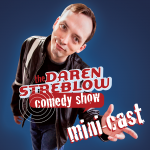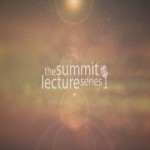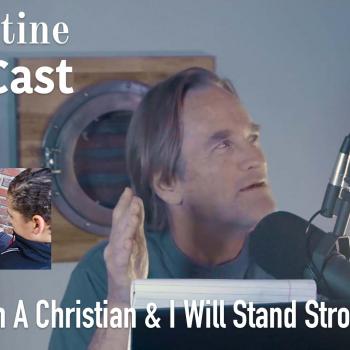
 An Examined Life with Jeff Allen: Christian Worldview with Nancy Pearcey, part 1 Play Now | Play in Popup | Download
An Examined Life with Jeff Allen: Christian Worldview with Nancy Pearcey, part 1 Play Now | Play in Popup | DownloadToday, we welcome one of my favorite authors. I fell in love with her 2000 Gold Medallion Award winning book How Now Shall We Live? which she wrote with the late, great Chuck Coleson. Another of my favorites she wrote is Total Truth: Liberating Christianity from Its Cultural Captivity. This amazing author, educator, and Christian worldview expert is a professor at Houston Baptist University, and just an amazing woman – Nancy Pearcey.
But, Nancy hasn’t always been the perfect representative of Christian worldview. She was raised in a Lutheran home and began questioning her parents’ beliefs and the structures she was surrounded with when she was in high school. So much so, that she claims that she actually “lost her faith” at that point.
At the time, she went to a public high school, didn’t have any Christian friends, and began asking the most basic of questions, like “how do we know Christianity is true?”
She wasn’t being rebellious. She wasn’t looking for an “out clause” nor wanting to escape Christianity’s moral restrictions. She was simply honestly pursuing truth.
Unfortunately, Christian Apologetics wasn’t anywhere near as accessible as it is today, so neither her parents nor pastors could adequately answer her questions.
At one point, she even asked a Christian College Professor why he was a Christ-follower and the best answer he could muster up was, “Well… it works for me.”
One Seminary Dean told her “Don’t worry… we all have doubts sometimes”, as if it were just a psychological phase that she was experiencing.
She couldn’t help but think, “If we all have doubts, then why don’t you have better answers for my doubts?!”
Without any good answers coming her way, Nancy simply concluded that if you don’t have good reasons to believe in something, then you shouldn’t say you believe it – whether it’s Christianity or anything else.
This all led to her trying vehemently to find the source of truth, ethics, morality and the like. Eventually, she concluded that there is no God, everything is relative, you do what’s right for you, and I’ll do what’s right for me. After all, scientists were proposing that we humans are just complex machines, anyway, so how could our tiny little brains even comprehend something as vast as “truth”?
All this to say, she slid quite rapidly from church-going Christian to extreme skepticism and relativism.
A couple years later, Nancy was going to school in Germany, and traveled to L’Abri in Switzerland, where she stumbled across the ministry of Francis Schaeffer. This was the first time that she discovered Christians who could engage with her intellectual questions regarding the Christian faith. These people were also into culture and art, and to top it all off, they were hippies, so that meant that they were cool!
After reading theologians like Schaeffer and C.S. Lewis, she dedicated her life to following Jesus Christ. She then decided to travel back to L’Abri, since that was where she began being grounded and realizing what a Christian worldview was all about.
In her book, The Soul of Science, Nancy discusses how Christianity gave rise to modern science, and the key ways it provided concepts like the Order of Nature. Yet, somehow, science eliminated God from the equation and along with Him, objective moral truth. All this was key to Nancy’s own conversion back to Christianity.
You see, before she could even consider whether or not Christianity is true, Nancy had to learn whether or not truth even existed, as she had been taught the contrary. Yet, as Schaeffer wrote, the biggest barrier to people accepting Christianity today is that Christianity itself has been divided. People used to think that there was moral truth and there was natural truth. Likewise, we believed there was a moral order of things and natural order of things. Both of these truths and orders were objective – different, but objective. In other words, it’s possible to have objective truth morally, just like you can have objective truth in science.
Then 21st century modern thought gave up that concept of unified truth. They said that we can have testable truth in science, but not in morality. So, science became the purest “ism”, claiming that the only truth that is reliable is that which could be seen, heard, weighed and measured. But, morality cannot be known by the senses. You can’t put a moral standard into a test tube, nor study it under a microscope. Therefore, the modern scientists taught that moral truths aren’t really truths. They’re just preferences or personal feelings toward a matter.

As Nancy puts it, Schaeffer was right, and even today, this is still one of the greatest barriers in revealing the truth about Christianity.
When a Christian approaches a non-Believer and tells them that they would like to unfold for them what it means to be a Christian, the non-Christian thinks that their friend is merely conveying his or her personal belief structure, while the Christ-follower thinks they are unfolding absolute truth. Worse yet, the non-Christian often feels like their Christian friend is imposing their Christian beliefs on them and innately oppose everything their friend has to say.
We see this in today’s political climate as well. When Ten Cruz said that he is a Christian first and an American second, this made perfect sense to most Christians, but is absolutely appalling to non-Christians.
Which begs the question: How did we get to the point where so many things that contradict one another are all thrown in the same basket as equally true?
To illustrate how this happened, Schaeffer uses the analogy of a two-story building. In the lower story of the building, people put facts, reason and other things that can be known objectively and empirically. In the upper story – which becomes more of an attic – people put everything that cannot be proven via empirical scientific methods, such as theology, morality, meaning, beauty, and art. These things in the second story become subjective personal preferences. But, preferences by definition are not a matter of truth or false. If one person likes chocolate and another prefers vanilla, there is no true or false there. But, if the chocolate person were to say, “You MUST like chocolate!” the vanilla person will be offended that they were pressing their personal preferences on them.
So, if you put things like theology and religion in the upper story, you are essentially saying that truth does not apply to these things.
All this to say, that by this logic, if someone says that Christianity is true, they have made a categorical mistake. It’s like saying chocolate is true or the color blue tastes sweet… it just doesn’t make sense.
This explains why so many people are confused regarding this issue. They assume that Muslims, Christians, Buddhists… they’re all basically the same; because they’ve all been reduced to personal preferences without regard to truth. This not only effects the non-Christian’s perspective toward Christianity, but the Christian method of communicating the Bible’s truth.
Now, Christians need to back up and ask the question, “What do we even mean by ‘truth’? How can we say that a religious claim is true or false?” Schaeffer called all this “pre-evangelism”. And, as Christians, we have to do a lot of it today before Christianity can even seem sensible.
This ties back to the story Hank the Cowdog, which Nancy loved for years and years. In the story, Hank is a cowdog (instead of a cowboy) who heads up ranch security at a West Texas ranch. Living at the ranch is a family with a husband, wife, their son, and a single man who works as their ranch hand. (The ranch hand is the perspective of John Erickson, the author himself.)
Well, years ago, CBS Entertainment was taking many of the day’s contemporary children’s books and developing them into Saturday morning cartoons, including Hank the Cowdog.

But, when the cartoon was released, John’s story had been changed in several key ways. Firstly, the married couple were no longer married and their son wasn’t in the story whatsoever. Then, the wife had been turned into the ranch boss, which changed the dynamic entirely, as she supervised the existing ranch hand and a second ranch hand, who happened to have the same name as the husband in the original story. So, all three adults lived together in a bunkhouse, and the entire family unit had landed on the editing room floor.
All these changes to Erickson’s work led him to start looking into Christian worldview, which is how he discovered Nancy’s book. That’s when he realized how his little children’s book had been subverted by the forces of political correctness:
- Marriage is a trap for women, so make sure that the female lead isn’t married.
- Family is an archaic institution that doesn’t have a place in our current culture.
- Children are a barrier to a woman’s career aspirations, so they were omitted entirely.
So, what was originally a story that revolved around traditional family values had been completely restructured around a completely different set of beliefs, proving that what was once held as truth in America – the benefits of a strong nuclear family – has now been made a matter of personal preference. This cartoon also brought to light that progressive values are not waiting for our children in the college lecture halls, but is being broadcast within Saturday morning cartoons to even our littlest of children.












